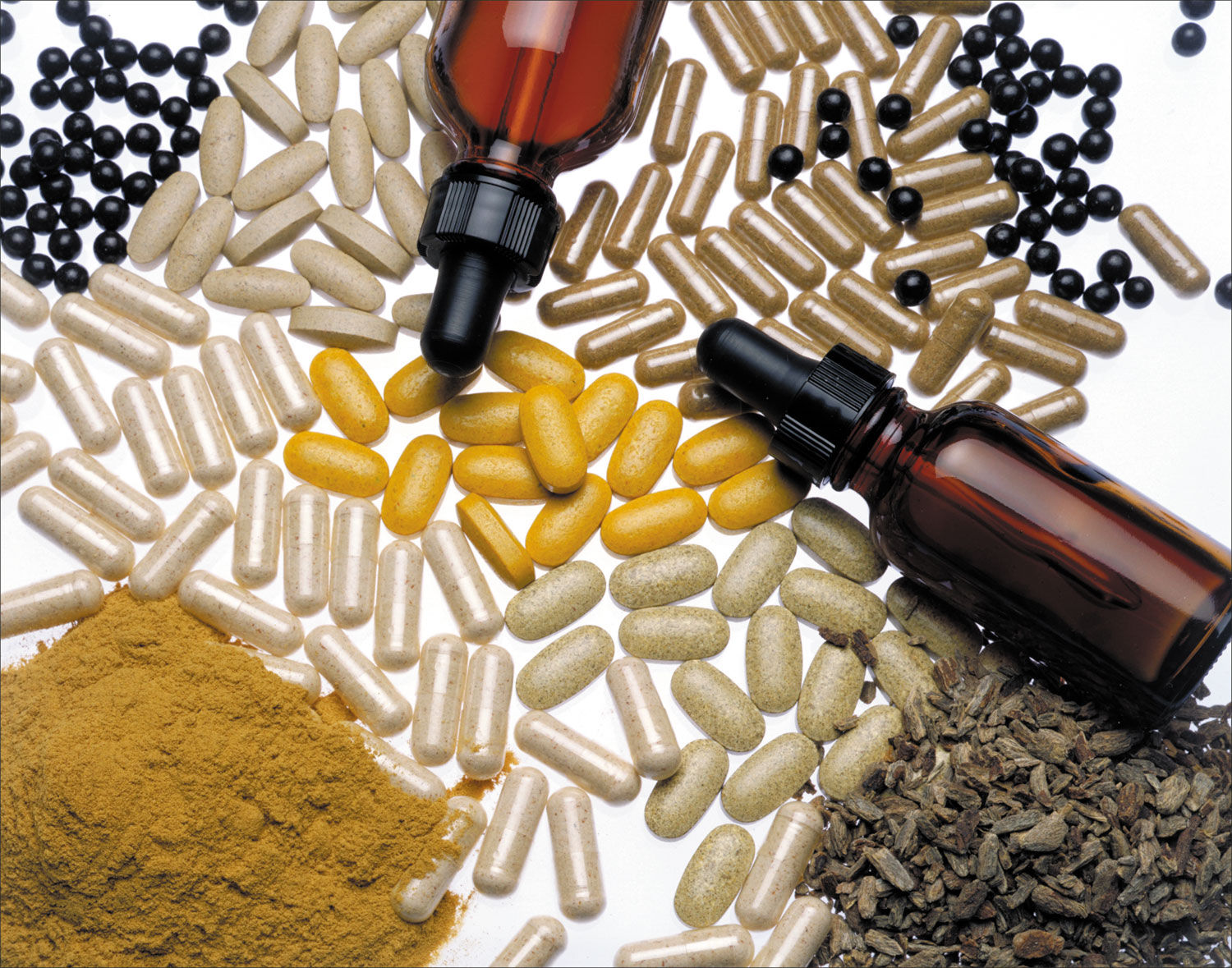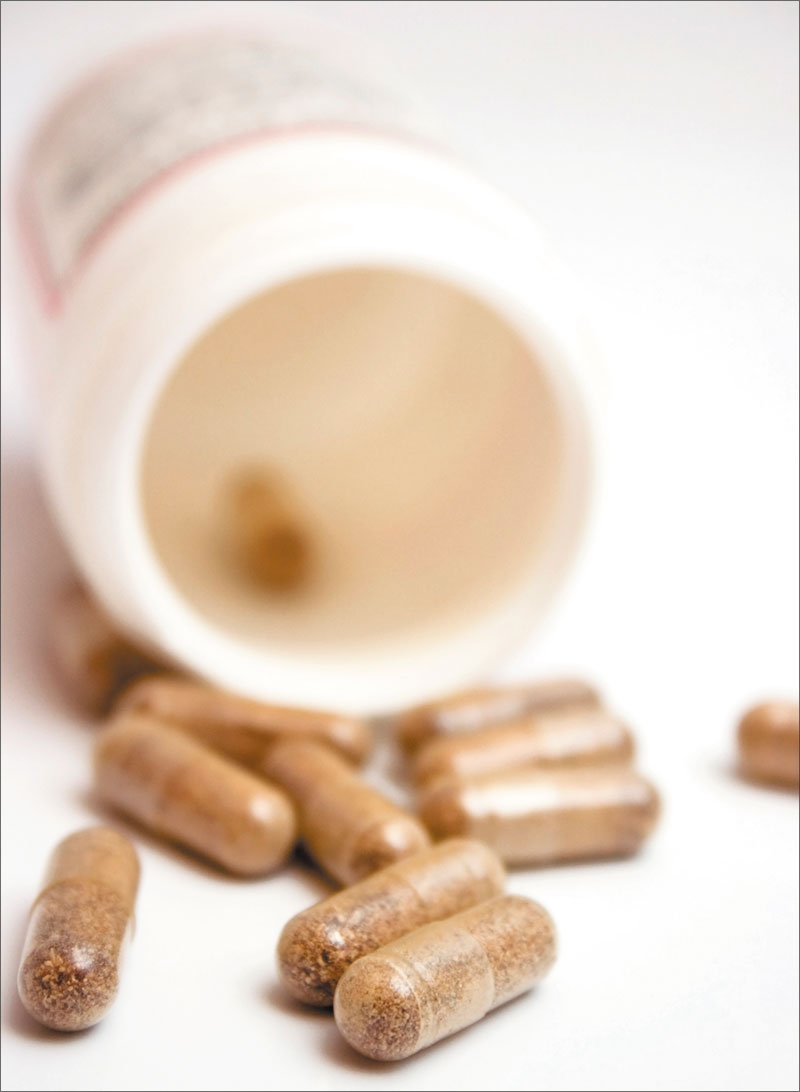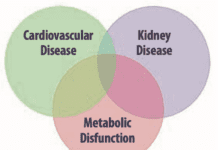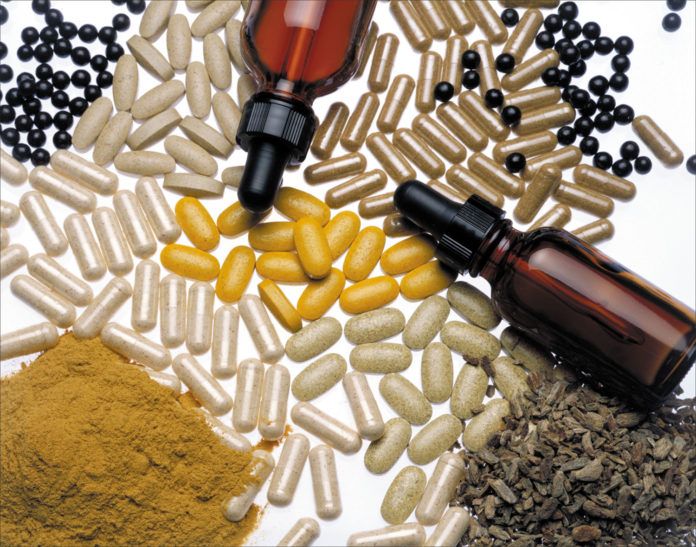If you turn to herbal or botanical treatments or other alternative products marketed as dietary supplements to counter chronic conditions or boost your well-being, recent headlines might make you think twice before reaching for that pill bottle. Just in the past 12 months, regulators have warned of dangers from unlabeled pharmaceutical ingredients in an arthritis product and thyroid hormones in energy-boosting pills. Medical experts have reported an alarming increase in liver damage linked to weight-loss and fat-burning products.


Because supplements are sold over the counter, its easy to assume that they are all safe and beneficial, says Diane L. McKay, PhD, an assistant professor at Tufts Friedman School who wrote about the safety of such products in the book 20 Years Younger, coauthored with Oprah trainer Bob Greene. Thats not necessarily so.
The reality is that makers of dietary supplements-whether the products actually supplement an important nutrient or not-dont have to adhere to the strict requirements for safety and effectiveness that govern medications. Unproven claims and even unlabeled or adulterated ingredients may put consumers at risk.
Americans spend an estimated $32 billion in the dietary supplements aisle every year, including not only supplements of vitamins and minerals that science has shown the body needs but also herbal, botanical and other remedies that fall under the same regulatory framework. About half of all US adults take dietary supplements, ranging from a daily multivitamin to exotic extracts promising to promote weight loss, boost brainpower and turn back the clock on aging. Many people take more than one supplement, often unaware of possible interactions between pills or with their prescription medications
Personally, I think its a shame that vitamin/mineral supplements have to be lumped in with all of these other types of products, says McKay. There are benefits to consuming a standard, once-a-day type of multivitamin, as well as reasonable doses of other micronutrients, especially for certain groups or populations.
DIFFERENT RULES: Most consumers assume that because a product is on the shelf at their local supermarket, drug store, warehouse club or health-foods outlet, the government has guaranteed that it is safe and effective. But the rules for dietary supplements are quite different from those for prescription or over-the counter medications, which are extensively tested for safety and effectiveness before the US Food and Drug Administration (FDA) allows them on the market. Under the 1994 Dietary Supplement Health and Education Act (DSHEA), manufacturers-not the FDA-certify that a product is safe. The FDA can take action only after a product reaches store shelves, if a health hazard is detected. Often even those actions can take months or years, during which a product remains for sale.
Prior to the passage of DSHEA, dietary supplements were subject to the same regulatory requirements as foods. The 1994 law, which amended the Federal Food, Drug and Cosmetic Act, created a new regulatory framework for the safety and labeling of dietary supplements. According to the FDA, Under DSHEA, a firm is responsible for determining that the dietary supplements it manufactures or distributes are safe and that any representations or claims made about them are substantiated by adequate evidence to show that they are not false or misleading. This means that dietary supplements do not need approval from FDA before they are marketed. Except in the case of a new dietary ingredient, where pre-market review for safety data and other information is required by law, a firm does not have to provide FDA with the evidence it relies on to substantiate safety or effectiveness before or after it markets its products.
What qualifies as a dietary supplement? As defined by Congress in the 1994 act, a dietary supplement is a product taken by mouth that contains a dietary ingredient intended to supplement the diet. By supplement the diet, however, the law went well beyond scientifically recognized vitamins, minerals and nutrients that consumers might want to obtain in pill form to insure against dietary shortfalls. Such ingredients may include vitamins, minerals, herbs or other botanicals, amino acids, enzymes, metabolites and even organ tissues. So-called dietary supplements can also be extracts or concentrates, and may be found in forms including tablets, capsules, softgels, gelcaps, liquids or powders.
Such products labels and other labeling, such as package inserts and accompanying literature, fall under the purview of the FDA. The Federal Trade Commission (FTC) regulates dietary supplement advertising.
Under DSHEA, after a dietary supplement reaches consumers, its up to the FDA to show that the product is unsafe before it can take action to restrict its use or sale. Manufacturers and distributors of such products are also supposed to record, investigate and forward to the FDA any reports they directly receive of serious adverse events associated with the use of their products.
This regulatory framework is news to most consumers, however. One Harris poll found that 58% think the FDA must approve herbal products before sale.
Its really the Wild West, commented Herbert L. Bonkovsky, MD, director of the liver, digestive and metabolic disorders laboratory at Carolinas HealthCare System in Charlotte, NC, one of the researchers linking supplements to liver damage. When people buy these dietary supplements, its anybodys guess as to what theyre getting.
QUALITY CONTROL QUESTIONS: Dr. Bonkovsky and colleagues recent findings dramatize one area of concern about the safety of products sold as dietary supplements: adulteration or ingredients otherwise unlisted or present in concentrations significantly greater or lower than labeled. The FDA estimates that 70% of dietary-supplement manufacturers fail to follow basic quality-control standards.
A related problem is simply a lack of knowledge about how many ingredients found in such products affect the body. Paul A. Offit, chief of infectious diseases at the Childrens Hospital of Philadelphia and author of Do You Believe in Magic?, about the dietary supplements industry and its claims, estimates that only 170 of about 55,000 such products sold in the US-about 0.3%-have been studied closely enough to determine any common side effects.
When a product is regulated, you know the benefits and the risks and you can make an informed decision about whether or not to take it, Dr. Offit told the New York Times earlier this year when the findings of liver damage were reported. With supplements, you dont have efficacy data and you dont have safety data, so its just a black hole.


According to that report from a nationwide network of liver specialists, dietary supplements were linked to almost 20% of the most serious drug-related liver injuries that required hospitalization in 2012. That represented a sharp increase from 7% a decade ago. And the scientists, members of the Drug-Induced Liver Injury Network, established by the National Institutes of Health, said their count was probably low, because it included only the most severe cases.
Many of the instances of liver damage were tied to fat-burning products containing high concentrations of green-tea extract-many times what youd sip in a cup of tea. The antioxidant catechin compounds in green tea can be toxic to the liver in extreme doses, Dr. Bonkovsky said, and some people seem to be particularly susceptible to such damage. Some of these cases were severe enough to require a liver transplant. Although a large group of affected patients were nave teenagers, according to the report, many others were middle-aged women hoping for a quick weight-loss solution.
SECRET INGREDIENTS: Another report making headlines recently found that several popular thyroid-boosting products contained potent thyroid hormones supposed to be dispensed only by prescription. Victor Bernet, MD, chairman of endocrinology at the Mayo Clinic in Florida, and colleagues published findings in the journal Thyroid from testing 10 such products sold online. All but one contained the hormones thyroxine, triiodothyronine or both in amounts as high or higher than in prescription medications.
Sold with promises that they boost energy, such products commonly contain a mixture of vitamins, minerals and botanical ingredients such as ashwagondha and bladderwrack seaweed. About half the products tested also contained iodine, which the body needs to make thyroid hormones-too much iodine, however, can also be harmful.
Similarly, too much thyroid hormone can be harmful just like too little. It has a narrow therapeutic window, Dr. Bernet explained. Its easy to go over or under.
His advice? Skip all such thyroid-boosting products. You cant trust any of these things. You dont know whats in them.
CAUSE FOR RECALL: Although powerless after DSHEA to prevent adulterated dietary supplements from reaching the market, the FDA can order recalls-or convince the manufacturer to recall a product-when problems are spotted subsequently. These recalls can, however, take a long time.
For example, in March, an arthritis and muscle pain product was recalled voluntarily after it was found to contain two active pharmaceutical ingredients. Reumofan Plus, sold online by Pain Free By Nature, posed a serious health risk, according to the FDA. One ingredient, diclofenac, is a non-steroidal anti-inflammatory (NSAID) drug that can increase the risk of cardiovascular events and gastrointestinal bleeding. The other, methocarbamol, is a prescription muscle relaxant that can cause dizziness, low blood pressure and sedation. The FDA first alerted consumers to risks from Reumofan Plus, after reports of adverse events, nearly two years before the company agreed to recall it and cease distribution.
Other recent voluntary recalls have included: Mega Slim Herbal Appetite Management, found to contain DMAA (also called geranium extract), which has been linked to cardiovascular events; a long list of weight-loss products sold by MyNicKnaxs, which contained undeclared pharmaceutical ingredients; and Bella Vi, found to contain two undeclared ingredients, one a laxative not approved for sale in the US and the other of which could present a risk to patients with cardiovascular problems.
INGREDIENT SHORTFALLS: Posing less of a risk to health, but nonetheless a concern to consumers, is the problem of products that dont contain as much of a key ingredient as promised on the label. The most recent headline-making example was an analysis of 30 top-selling fish-oil pills conducted by a testing company called LabDoor. Six of those products, LabDoor found, contained lower total amounts of heart-healthy omega-3 fatty acids than stated on the label-on average, 30% less.
Other fish-oil pills tested fell short in the key omega-3 DHA (docosahexaenoic acid). One contained only half as much DHA as listed on the label. Overall, mislabeling affected one in three of the products tested.
Consumers concerned about the quality of such products can look for those displaying the USP Verified Mark of the US Pharmacopeial Convention. USP is a scientific nonprofit organization that establishes federally recognized standards for the quality of drugs, dietary supplements and foods. The Verified Mark recognizes products that have been submitted to the USP Dietary Supplement Verification Program and have successfully met the programs testing and auditing criteria. The program is voluntary, however, and only a handful of companies-among them, though, some of the best-known brands-participate. A list of participating manufacturers can be found on the USP website
You can also learn more about herbs and similar products, including possible interactions or side effects, in the MedLine Plus database of the US National Library of Medicine
Before you take a chance on dietary supplements, however-particularly those lacking clear scientific evidence for a benefit-make sure your healthcare professional is on board. If you have any health conditions, always discuss supplementation with your doctor before stocking up, Tufts McKay says. When you see your doctor, bring a list of supplements you are taking with you. Some supplements can interfere with certain drugs [see box], and your doctor needs to know what youre taking when prescribing medications-or even when diagnosing your condition.
Even with supplements of familiar vitamins and minerals, McKay cautions, dont assume that more is necessarily better. Never mega-dose-that is, take double or triple (or more) of the levels recommended by the Institute of Medicine, she says, even if youve read that a vitamin or mineral has no known toxicity.
























